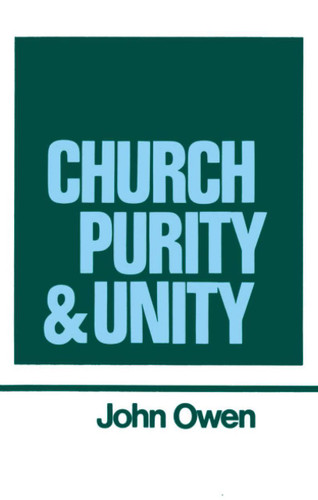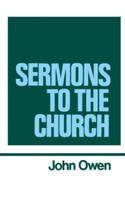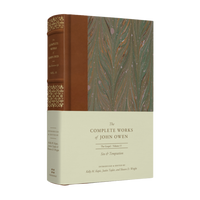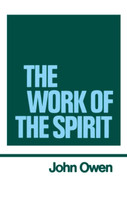
The Works of John Owen, Vol. 15: Church Purity and Unity
$21.00
$28.00
(You save
$7.00
)
- Affordable shipping (free $100+)
- 100,000+ customers served
- "Wonderful books, great prices, awesome customer service." – Ivan, IL
Despite his other achievements, Owen is best famed for his writings. These cover the range of doctrinal, ecclesiastical and practical subjects. They are characterized by profundity, thoroughness and, consequently, authority. Andrew Thomson said that Owen 'makes you feel when he has reached the end of his subject, that he has also exhausted it.'
Although many of his works were called forth by the particular needs of his own day they all have a uniform quality of timelessness. Owen's works were republished in full in the nineteenth century. Owen is surely the Prince of the Puritans. 'To master his works', says Spurgeon, 'is to be a profound theologian.'
Table of Contents:
| A DISCOURSE CONCERNING LITURGIES, AND THEIR IMPOSITION. | ||
| PREFATORY NOTE DY THE EDITOR | ||
| CHAPTER I. | ||
| The state of the Judaical church-The liberty given by Christ; 1: From the arbitrary impositions of men; 2: From the observances and rites instituted by Moses,- The continuance of their observation, in the patience and forbearance of God-Difference about them stated-Legal righteousness and legal ceremonies contended for together; the reason of it | 3 | |
| CHAPTER II. | ||
| The disciples of Christ taken into his own disposal – General things to be observed about gospel institutions-Their number small-Excess of men’s inventions Things instituted brought into a religious relation by the authority of Christ That authority is none other-Suitableness in the matter of institutions, to be designed to their proper significancy-That discoverable only by infinite wisdom-Abilities given by Christ for the administration of all his institutions The way whereby it was done, Eph. iv. 7, 8-Several postulata laid down- The sum of the whole-State of our question in general | 8 | |
| CHAPTER III. | ||
| Of the Lord’s prayer, and what may be concluded from thence as to the invention and imposition of liturgies in the public worship of God-The liberty whereunto Christ vindicated and wherein he left his disciples | 13 | |
| CHAPTER IV. | ||
| Of the worship of God by the apostles-No liturgies used by them, nor in the churches of their plantation-Argument from their practice-Reasons pleaded for the use of liturgies: disabilities of church-officers for gospel administration to the edification of the church; uniformity in the worship of God-The practice of the apostles as to these pretences considered-Of other impositions The rule given by the apostles-Of the liturgies falsely ascribed unto some of them | 16 | |
| CHAPTER V. | ||
| The practice of the churches in the first three centuries as to forms of public worship-No set forms of liturgies used by them-The silence of the first writers concerning them-Some testimonies against them | 21 | |
| CHAPTER VI. | ||
| The pretended antiquity of liturgies disproved-The most ancient-Their variety-Canons of councils about forms of church administrations-The reasons pleaded in the justification of the first invention of liturgies answered -Their progress and end | 25 | |
| CHAPTER VII. | ||
| The question stated-First argument against the composing and imposing of liturgies-Arbitrary additions to the worship of God rejected-Liturgies not appointed by God-Made necessary in their imposition, and a part of the worship of God-of circumstances of worship-Instituted adjuncts of worship not circumstances-Circumstances of actions, as such, not circumstances of worship-Circumstances commanded made parts of worship-Prohibitions of additions produced, considered, applied | 33 | |
| CHAPTER VIII. | ||
| Of the authority needful for the constituting and ordering of anything that is to have relation to God and his worship-Of the power and authority of civil magistrates-The power imposing the Liturgy-The formal reason of religious obedience-Use of the liturgy an act of civil, not religious obedience, Matt. xxviii. 20-No rule to judge of what is meet in the worship of God, but his word | 42 | |
| CHAPTER IX. | ||
| Argument second-Necessary use of the liturgy exclusive of the use of the means appointed by Christ for the edification of his church | 46 | |
| CHAPTER X. | ||
| Other considerations about the imposition of liturgies | 50 | |
| A DISCOURSE CONCERNING EVANGELICAL LOVE, CHURCH PEACE, AND UNITY. | ||
| PREFATORY NOTE BY THE EDITOR | 58 | |
| CHAPTER I. | ||
| Complaints of want of love and unity among Christians, how to be managed, and whence fruitless-Charge of guilt on some, why now removed, and for whose sakes-Personal miscarriages of any not excused-Those who manage the charge mentioned not agreed. | 59 | |
| CHAPTER II. | ||
| Commendations of love and unity-Their proper objects, with their general rules and measures-Of love toward all mankind in general-Allows not salvation unto any without faith in Christ Jesus-Of the differences in religion as to outward worship | 68 | |
| CHAPTER III. | ||
| Nature of the catholic church-The first and principal object or Christian love-Differences among the members of this church, of what nature, and how to be managed-Of the church catholic as visibly professing-The extent of it, or who belong unto it-Of union and love in this church-state – of the church of England with respect hereunto-Of particular churches; their institution; corruption of that institution-Of churches diocesan, etc.-Of separation from corrupt particular churches-The just caused thereof, etc. | 77 | |
| CHAPTER IV. | ||
| Want of love and unity among Christians justly complained of-Causes of divisions and schisms-1. Misapprehensions of evangelical unity-Wherein it doth truly consist-The ways and means whereby it may be obtained and preserved-Mistakes about both-2. Neglect in churches to attend unto known gospel duty-Of preaching unto conversion and edification-Care of those that are really godly-Of discipline: how neglected, how corrupted-Principles seducing churches and their rulers into miscarriages: 1. Confidence of their place; 2. Contempt of the people; 3. Trust unto worldly grandeur-Other causes of divisions-Remainders of corruption from the general apostasy-Weakness and ignorance-Of readiness to take offence-Remedies hereof-Pride-False teachers | 104 | |
| CHAPTER V. | ||
| Grounds and reasons of nonconformity | 141 | |
| AN INQUIRY INTO THE ORIGINAL, NATURE, INSTITUTION, POWER, ORDER, AND COMMUNION OF EVANGELICAL CHURCHES. | ||
| PREFATORY NOTE BY THE EDITOR | 188 | |
| To the Reader | 189 | |
| THE PREFACE. | ||
| An Examination of the general principles of Dr Stillingfleet’s Book of the Unreasonableness of Separation | 193 | |
| CHAPTER I. | ||
| Of the original of churches | 223 | |
| CHAPTER II. | ||
| The especial original of the evangelical church-state | 230 | |
| CHAPTER III. | ||
| The continuation of a church-state and of churches unto the end of the world-What are the causes of it, and whereon it depends | 217 | |
| CHAPTER IV. | ||
| The especial nature of the gospel church-state appointed by Christ | 261 | |
| CHAPTER V. | ||
| The state of the first churches after the apostles, to the end of the second century | 277 | |
| CHAPTER VI. | ||
| Congregational churches alone suited unto the ends of Christ in the institution of his church | 302 | |
| CHAPTER VII. | ||
| No other church-state of divine institution | 313 | |
| CHAPTER VIII. | ||
| The duty of believers to join themselves in church-order | 319 | |
| CHAPTER IX. | ||
| The continuation of a church-state and of the administration of evangelical ordinances of worship briefly vindicated | 327 | |
| CHAPTER X. | ||
| What sort of churches the disciples of Christ may and ought to join themselves unto as unto entire communion | 334 | |
| CHAPTER XI. | ||
| Of conformity and communion in parochial assemblies | 344 | |
| CHAPTER XII. | ||
| Of schism | 364 | |
| AN ANSWER TO DR STILLINGFLEET’S BOOK OF THE UNREASONABLENESS OF SEPARATION. | ||
| SECTION I. | 375 | |
| SECTION II. | 395 | |
|
|





